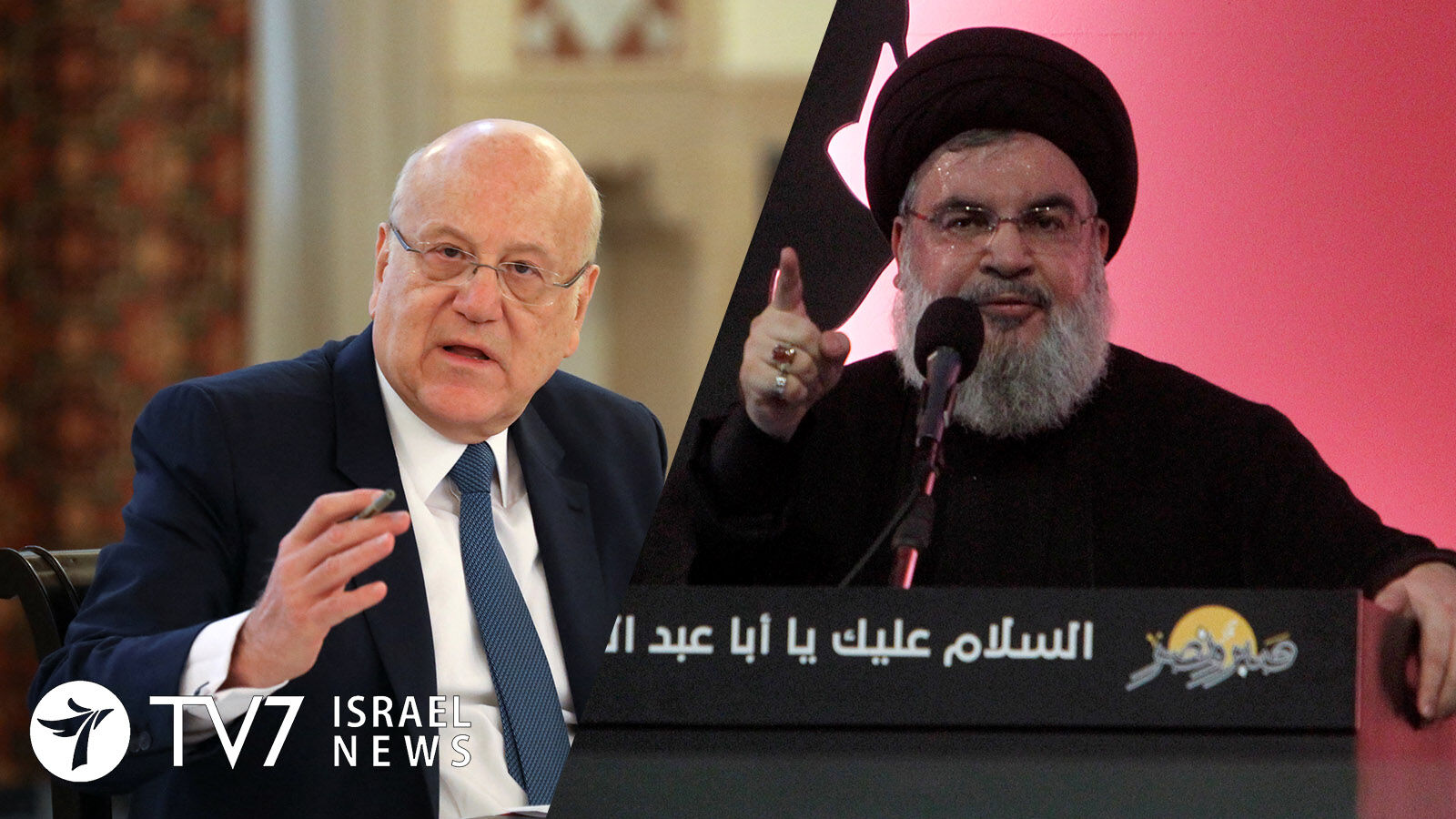Lebanese Prime Minister Najib Mikati announced his intention to convene the Cabinet within days for the first time in nearly 3 months, despite objections of the Iran-backed Hezbollah political and military group.
By Erin Viner
“We will convene Cabinet as soon as it receives the (2022) budget,” Mikati said following a meeting with President Michel Aoun, adding this should happen “within the next two days.”
The move could potentially end a standoff that has paralyzed the Beirut government during its massive financial melt-down, while possibly angering the internationally-recognized Hezbollah terror organization.
The powerful group and its Amal movement ally have refused to allow the Cabinet to meet since 12 October, over demands that the judge investigating the devastating 2020 explosion at the Beirut port be removed. Mikati has maintained that the executive branch has no say in the matter.
The Cabinet’s inability to meet has obstructed discussion and possible passage of measures to address the country’s deepening economic crisis, now in its third year; that has been described by international bodies as one of the most severe financial meltdowns in world history.
The Lebanese national currency plummeted to an all-time low of 30,000 pounds to the US dollar overnight on Wednesday, reflecting an astonishing 95% loss compared to its value in 2019.
According to Mikati, the long-delayed approval of the 2022 budget by the country’s Cabinet and parliament has been the primary requirement by the International Monetary Fund (IMF) during negotiations over a support program viewed as critical for Lebanon’s economic recovery.
“I think that (the Cabinet’s) agenda and the presence of the budget makes it more than necessary for Cabinet to meet, and I don’t think anyone will fall short on their national (duties),” he said.
Earlier, Prime Minister took aim at Hezbollah by announcing that criticism of Saudi Arabia by the group’s leader Sayyed Hasan Nasrallah was neither representative of Lebanon’s official policy nor in its national interest.
Saudi Arabia and several Gulf Arab states withdrew ambassadors and expelled Lebanese envoys in October and November 2020, over what Riyadh later said was due to dominance of the Lebanese state by the “terrorist Hezbollah.”
On Monday, Nasrallah accused Saudi Arabia King Salman bin Abdulaziz Al Saud of being a terrorist.
“King, the terrorist is the one who has exported … Daeshi ideology to the world, and it is you,” the Hezbollah chief said during a speech, using the Arabic acronym for the Islamic State (ISIS) terrorist group that declared “a caliphate” after briefly conquering large swathes of Syria and Iraq in 2014.
In a swiftly-issued statement distancing the Beirut government from Hezbollah, Mikati said, “”What … Nasrallah said about the Kingdom of Saudi Arabia this evening does not represent the position of the Lebanese government and most Lebanese. It is not in Lebanon’s interest to offend any Arab country, especially the Gulf states.”
Mikati then underscored, “For God’s sake, have mercy on Lebanon and the Lebanese people and stop the hateful sectarian and political rhetoric.”
Lebanese officials – including President Aoun, who is a Hezbollah ally – have joined Mikati’s call for dialogue with Riyadh to resolve the diplomatic rift, which has exacerbated the country’s financial crisis.
Mikati’s new government, formed last September after years of political turmoil, contains several ministers backed by Hezbollah and its Amal Movement collaborator.
